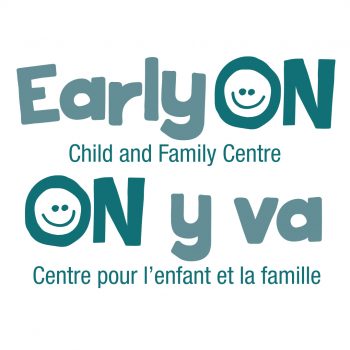

The City is working collaboratively with community partners to enhance the supports provided to families through EarlyON programs. The City’s plan for moving forward is described in the EarlyON Action Plan (2018-2020).
The EarlyON Virtual and Remote Service Guidelines (2020) outline the policy, operational and business practice requirements for EarlyON and Indigenous-Led Program Partners who wish to deliver accessible, responsive virtual and remote services.
Launched in Spring 2021, the Every Child Belongs Resource Consultation Service helps support EarlyON providers in delivering inclusive and enabling programs.
Resource Consultation services will help to strengthen EarlyON staff capacity, skills and knowledge through program consultations and sector-wide professional learning. The service will also include support for Check It Out early identification screening events.
Service will be delivered by Resource Consultation staff from Toronto Children’s Services and Centre Francophone du Grand Toronto (French language).
The Toronto EarlyON Child and Family Centres Design Guidelines (2020) guide the development and renovation of EarlyON Centres. Informed by community and sector engagement, this document provides helpful tips to ensure that all EarlyON spaces support child development, engage parents and caregivers as co-learners, and provide opportunities for families to participate in a welcoming and inclusive community. Contact earlyon@toronto.ca to request a copy in English or French.
The EarlyON Staff and Leadership Networks were established in 2019 to provide a structure for professional learning, information sharing, capacity building and networking in the EarlyON system. Each Network meets 3 times per year.
EarlyON staff teams must include at least one RECE to deliver mandatory core services related to supporting early learning and development at EarlyON Child and Family Centres. Examples of programs that must be delivered by an RECE include, but are not limited to, programs that build responsive adult-child relationships and encourage children’s exploration, play and inquiry.
Temporary exceptions for centres that cannot meet this requirement are available upon request.
The requirement for EarlyON Child and Family Centres to employ at least one RECE at every centre must have been met by January 1, 2023, however, in recognition of the current RECE shortages, the flexibility for CMSMs and DSSABs to grant exemptions will be extended into 2023 as follows:
Organizations must submit the EarlyON RECE Exemption Request Form with their annual budget submission; or at any time a position requiring an RECE is not filled.
Exemptions will be considered when service providers are actively taking appropriate action to fulfill RECE requirements, which can include (but is not limited to):
A grand-parenting provision was put into effect April 2019 that specifies that staff in EarlyON Child and Family Centres with more than 10 years of experience working in one of the four previous family support program types are not required to obtain their RECE credential. Grand-parented staff can be used to meet the RECE requirement.
Staff may only be grand-parented in the centre in which they are employed or were previously employed in and are returning to. This provision does not apply to new hiring for positions, or to persons that have been members of the College of Early Childhood Educators in the past, but have had their membership suspended, cancelled or revoked, or who have resigned or let their membership lapse. It also does not apply to those who have satisfied the educational requirements to be registered as members of the College but have not become members.
For a copy of the complete RECE policy, please contact earlyon@toronto.ca
To achieve the intended outcomes of EarlyON Child and Family Centres, the Ministry has identified a suite of mandatory core services that must be available to children and families. As service system manager, Toronto Children’s Services is required to manage the local delivery of core services related to:
Engagement may include group discussions, informal one on one engagement, printed and electronic resources or other engagement opportunities as appropriate.
On January 1st, 2018, the Province of Ontario transferred planning and administration responsibility for four types of programs for children (newborn to six) and their parents/caregivers to municipalities. These programs have been integrated and are being delivered under the common identity of EarlyON Child and Family Centres.